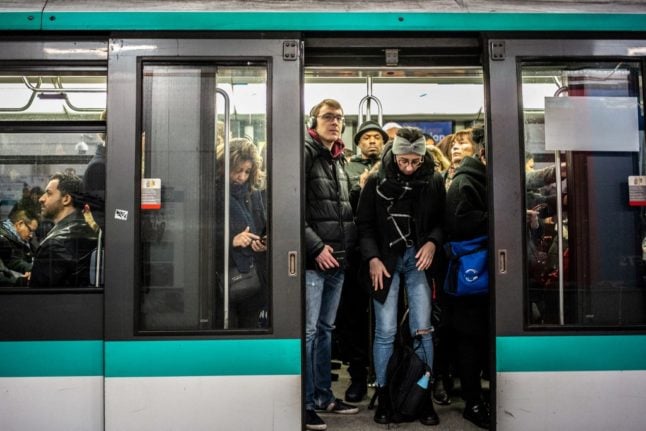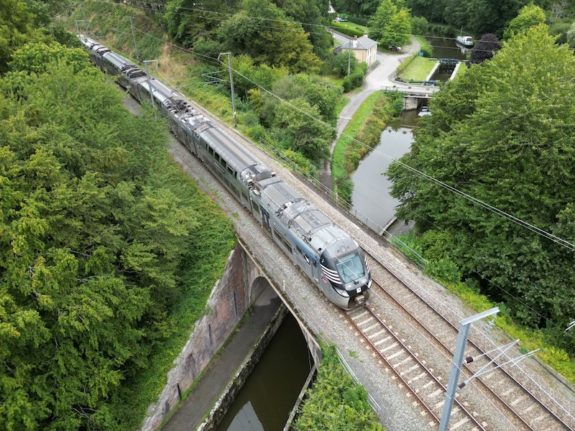France’s Council of Ministers is expected to confirm former Prime Minister Jean Castex as CEO of Régie autonome des transports parisiens (RATP) – the company that operates the capital’s Metro, bus, tram and train network.
But when he walks into his new office on Monday to take over a role that has been left vacant since the surprise resignation of Catherine Guillouard, he faces a number of major challenges, any of which could be considered a priority.
1 Service issues
The priority of priorities. The pandemic exacerbated staffing issues plaguing Paris’ public transport system.
Currently a shortage of drivers means RATP isn’t running full services and even a short delay on the Metro leads to overcrowing on the next train.
2 Staff morale
Very much linked to the above. RATP employs some 45,000 people in the Greater Paris region – many of whom are struggling with the rising cost of living. Salary negotiations and working conditions will be top of Castex’s to-do list (and of course we know what happens if negotiations break down – yes, strikes).
He has already spoken about the “quality of life at work issue” that must be tackled head-on, which indicates he’s aware of it. How much he can do about it remains to be seen.
3 Pensions
Castex’s diplomacy skills will be tested by the prospect of the government’s planned pension reforms – which include plans to end special regimes that many RATP employees currently enjoy and increase retirement age.
Any strikes, similar to those of December 2019, could paralyse the company and, as a direct result, Paris.
4 Maintenance, repairs and upgrades
Major works are currently affecting RER B lines – but there’s little sign of improvement and plenty of disruption at the moment for millions of daily users.
Meanwhile, RATP is waiting on delivery of 146 double-decker trains from Alstom and CAF, which will have to be deployed successfully from 2025.
It is also at the planning stage of automating Line 13 of the Metro.
5 Peak periods
The 2024 Olympic and Paralympic Games are looming – and, to a lesser extent, the 2023 Rugby World Cup.
Both will see spikes in demand for public transport services, with up to 1 million additional users per day expected during Games. Both RATP and SNCF need to be at the top of their public transport games at both events.
6 Access
A 2005 law enshrined the principle of universal accessibility across France, and explicitly stated that anyone with disabilities is entitled to the same rights of able-bodied citizens in France. It also set a target of 2015 for ensuring all public spaces and public transport systems were accessible to everyone.
The Metro was exempt from the 10-year deadline, due to “technical obstacles and difficulties” – but, according to RATP, people with reduced mobility, in particular wheelchair users, can use 100 percent of the Paris bus network; almost 90 percent of the suburban bus network, and 100 percent of tram lines and all 65 RER A and B stations.
On the Metro, however, it’s a very different story and only line 14 is currently wheelchair accessible. RATP says it is working on making lines 4, 11 and 12 100 percent accessible [for disabled users].
7 Energy sobriety
The catchphrase du jour in political and business circles. RATP consumes two percent of the energy used in the whole of the greater Paris Île-de-France region, about the same amount as the city of Bordeaux in a year – at a cost this year of around €260 million. Cutting energy consumption and costs will be vital.
8 Political relations
Île-de-France Mobilités is the transport network for the region – currently headed by former Presidential candidate Valérie Pécresse – and it pays €400 million to RATP and €300 million to SNCF every month, and has demands on the quality and quantity of services provided for its money.
Castex has to negotiate RATP autonomy and at the same time improve relations with City Hall in Paris following a failed overhaul of the city’s bus services in 2019.
Both Pécresse and city mayor Anne Hidalgo have been implacable critics of the Macron government in which Castex until recently served.
9 Extension and expansion
RATP is in charge of infrastructure for the massive Grand Paris Express project to extend lines out into the suburbs – set to enter service in 2024 between Pont-de-Sèvres and Noisy-Champs. RATP is also expected to be responsible for the extension of line 14 to Saint-Denis-Pleyel and Orly in time for the 2024 Olympics.
10 Competition
RATP’s monopoly on regional bus services ends on January 1st, 2025, when bus services are opened up to competition, followed by the tram system in 2030 and RER networks in 2040. Cue internal restructuring – and friction with the unions – as Paris and its suburbs are cut up in to 12 lots open for competition.



 Please whitelist us to continue reading.
Please whitelist us to continue reading.
Member comments